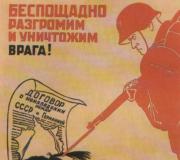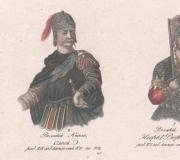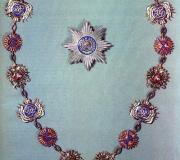Is it possible to train for a sore throat. Is it possible to play sports with a cold
)
The date:
2016-10-17
Views: 9 582
Flu or cold?
This is the time of the year that catching a cold or the flu virus is not difficult. And those of us who work hard in the gym know that there is nothing worse than missing a workout due to illness. Strength indicators go away, antibodies attack proteins, causing hated catabolism (muscle destruction), and even after an illness, the first workouts are very difficult. Therefore, let's learn how to determine for yourself what you "caught" so that you can start treatment and get back to training as soon as possible!
Clarification - not all people may experience the symptoms described below:
| Symptoms | Cold | Flu |
| Heat | Low degree or no | Temperature above 37 degrees |
| Fever | Rarely | Often |
| Muscle pain, body aches | Light | strong |
| Headache | Light | strong |
| stuffy nose | Often | Often |
| Sore throat | Often | Often |
| Cough | Often | Dry, learning |
| Complications | Ear infections, Asthma flare-ups | Ear infections, Asthma flare-ups, Pneumonia, Bronchitis, heart problems |
| Duration | 7 to 10 days | 1 to 2 weeks |
| Treatment | Rest, drinking regimen, limit contacts. Vitamin C, immunomodulators, BCAAs (to minimize catabolism) L-Glutamine. | Rest, drinking regimen, limit contacts. Taking antiviral drugs for the first 48 hours will help you recover faster. Vitamin C, immunomodulators, BCAAs (to minimize catabolism) L-Glutamine. |
Can you exercise?
Usually a cold doesn't get us off the schedule as much as the flu. And often training during a cold is safe (if you know how to "listen" to your body).
But if you decide to go to the gym during a cold, you must clearly control the following nuances:
- Physical activity leads to an increase in heart rate - but many cold medicines do the same. Therefore, a "mixture" of exercises and all kinds of TeraFlu and Coldrex can put an excessive strain on the heart. You can also get out of breath very quickly, making it harder for you to recover between sets.
- If you have asthma and have a cold, be sure to check with your doctor before going to the gym. Exercising can cause a coughing fit and make breathing difficult.
- If you have a fever or chills along with a cold, training will create a lot of stress. So wait a couple of days and see if you feel better.
- Of course, it makes no sense to say that during the flu, training will have to be postponed until a full recovery!
- In addition to the above, try to minimize the load on the central nervous system - reduce working weights by 20 - 30%, do more light cardio (walking, jogging).
We protect ourselves from diseases
It is better to prevent the disease than to treat it later. Personally, I have several proven ways to protect against colds that have been proven over the years:
- Take it constantly.
- – especially – are the most best stimulant immune system, so don't forget about them.
- If your body "tells" you that you are on the verge of illness, immediately go to infrared sauna. There you need to spend 20 minutes, drinking plenty of water or not hot tea, and then stay there for another 20 minutes after the heating is turned off to “sweat” and cool down.
Everyone involved in sports doesn't even have to bodybuilding, faced with colds, which sometimes occur at the most inopportune moment. Although it is difficult to imagine the "right moment" for disease. After all, we never plan it.
And so, if you still get sick, or just catch a cold, is it worth going to the gym? cold workouts- not the most the best way, although much depends on the degree of the disease.
If you have just started to get sick, at the first symptoms of a cold, you should immediately change intensity and working weights. If you reduce working weights by 50%, this will not negatively affect muscle growth, for that you will save energy to fight the disease. In some cases, it is worth giving up training altogether. Much here depends not only on the symptoms, but also on how you carry viral diseases. Personally, I endure it hard, so I immediately exclude training for a cold. It is better to wait a day or two, and then, after the symptoms disappear, go to the gym. It will be much worse if you do not allow the body to overcome the disease by spending all the energy in the gym, and you get even sicker, after which you have to give up the gym for a week, at least. You will also lose weight when you are sick.
Research
Scientists from the American College of Sports Medicine have proven that exercising at a moderate pace with mild symptoms of a cold is not harmful to health. Whereas power training(bodybuilding or powerlifting) worsened recovery rates. It is generally accepted that exercise can reduce the risk of a cold, but until now it has not been clearly known how sports and a cold are combined at the same time. In any case, most doctors agreed that exercise can worsen the course of a cold, even if you feel well and have mild symptoms.
As a rule, a cold strikes each person on average 2-5 times a year, and in duration it can reach 1-2 or even three weeks until complete recovery. This shows that even mild colds can seriously hinder progress in bodybuilding and other sports.
During the study, about 50 volunteers were tested, a list of which were student volunteers, they were injected with infected serum and observed for 10 consecutive days. Half of them did not exercise throughout the disease, while others continued to actively train.
Both groups of subjects were subjected to daily stress: running and exercising on simulators. At the end of the study, the researchers found that both groups had similar recovery rates, suggesting that moderate exercise did not affect recovery, symptom severity, or complications. It is important to note that the subjects who underwent high-intensity training (which is in fact equivalent to regular bodybuilding training) had worse recovery rates.
Criticism of the study
AT this study a mild strain of the common cold virus was used, which almost never causes health complications. However, in ordinary life, a person is exposed to infection of a wide variety of viruses that can affect the lung tissue, bronchi and, most importantly, the cardiovascular system and muscles.
For example, sometimes the flu is almost impossible to distinguish from a mild SARS. If you exercise while you are sick with the flu, even if you feel well and have almost no cold symptoms, you risk serious heart complications, as the flu virus causes inflammation of the myocardium. Physical exercise leads to overload of the myocardium, and the development of irreversible complications is possible!
Any cold (even in a mild form) leads to the suppression of anabolic processes in the muscles and activates the secretion of the catabolic hormone cortisol, which destroys the muscles. Physical activity exacerbates catabolic processes, and in the presence of slow anabolism, you will not get the positive effect of strength training, and on the contrary, training will destroy your muscles.
Conclusion
It is obvious that colds and sports are not compatible. You will not get positive results from training in the peak phase of the illness. Do not exercise if you have a cold until all symptoms of the disease have disappeared and you begin to feel well. If the disease was severe, then it is necessary to refrain from training for 3-4 extra days until full recovery to avoid complications and muscle breakdown.
How to treat a cold?
Measures aimed at the cause and pathogenesis of the disease:
- Drink plenty of fluids - up to 3 liters per day. Drinking plenty of water has been proven to speed up recovery.
- Eat raw onions and garlic. These plants contain phytoncides that destroy disease-causing elements.
- Take vitamin C at a dose of 1000 - 2000 mg per day.
- Take complex vitamins.For the destruction of almost all respiratory viruses, the drug Cycloferon is highly effective (has a high cost). The popular drug Arbidol (moderate cost) is much less effective. The drug Anaferon - as studies have shown, is generally ineffective. It is advisable to use these drugs only from the first day of the disease.
- Gargle with Rotokan (low cost) - extract of chamomile, calendula and yarrow. The tincture cleanses the mucosa and suppresses inflammation.
- If cough is pronounced, take expectorants - ACC or Ambrobene (Ambroxol)
- Physical activity and sports with a cold (especially in the active phase of the disease) are not desirable.
Measures to relieve symptoms:
- antipyretics ( complex tool TheraFlu has proven itself especially well as a symptomatic remedy).
- Lozenges for cough suppression and pain relief (Travisil, Strepsils, etc.)
- If cough is pronounced, use Glycodin or Tussin+ syrups.
- Sprays to eliminate the feeling of sore throat and irritation in the nose - Kameton
How to prevent the development of a cold and strengthen the immune system?
- Take a vitamin-mineral complex 2-4 times a year
- Don't Overwork
- Take Glutamine
- Take Extra Vitamin C During an Epidemic
- Take echinacea extract (herbal immunomodulator) during the epidemic
- Practice hardening
Is it possible to play sports or fitness when a person has a cold? There will be no definite answer to this question. Some believe that with the help of sports, you can quickly get rid of a cold, while others believe that with an infectious disease, physical activity should be avoided because of the risk of developing serious complications. MedAboutMe tells you what to look out for if you still decide to visit the gym or go for a run while you are sick, and when it is better to stop exercising.
Sports for a mild cold
The basic rule of health says: during an illness, a sparing regimen is necessary. However, with mild forms of a cold without fever, cough and sore throat, physical activity is not prohibited. As a rule, with a mild course of the disease, you can go in for sports if the person feels well enough - but still not in the first or second day of malaise.
After the acute symptoms subside, it is necessary to choose a gentle training regimen, and even better, first consult with your doctor if it is possible to do fitness or sports training in this case. If you feel tired, it is better to refuse any physical activity: listen to your body and enjoy a short pause.
If your disease is something more than a "simple" runny nose, then you must give up any physical activity: the body is already spending all its strength on fighting the infection. In this situation, sport creates an excess load, which leads to a weakening of the immune system.
In the following cases, playing sports can be hazardous to health:
- Fever (temperature above 38 degrees);
- Severe viral or bacterial infection;
- Influenza or parainfluenza;
- sore throat (tonsillitis);
- While taking antibiotics, analgesics and drugs that reduce the temperature.
Why is physical activity dangerous during a cold?
People who exercise during a viral or bacterial infection put their health at great risk. Physical activity can spread viruses, bacteria and their toxins throughout the body and damage many organs. In the worst case, it can even lead to myocarditis - inflammation of the heart muscle - a life-threatening condition.
With a mild cold, it is also very important not to overdo it in your sports. Excessive load on the immune system can lead to its weakening and complications such as tonsillitis, bronchitis and pneumonia.
At healthy people sports increase immunity, in this the opinion of all doctors is unanimous. Often, at the philistine level, one can hear the opinion that sports also help to cure a cold. Some even say that "the disease evaporates with sweat." Experts, however, strongly advise avoiding physical activity while sick. Sports do not have the same "sweating effect" as a sauna. For a successful recovery, it is better to stay in bed.
Light exercise after a flare-up subsides can be beneficial because it improves circulation and supports the immune system. Necessary condition, however, is the absence of serious manifestations of a cold, such as fever, and normal health.
What types of physical activity are allowed with a cold?
During illness, it is necessary to avoid visiting fitness rooms - at least in order not to infect other people. If the weather permits, you can do one of the easy activities in the park: walking or jogging. If you are not feeling well, you can just take a short walk on fresh air. sunlight promotes the production of vitamins and, thereby, strengthens the immune system.
How long after a cold you need to refrain from playing sports depends on the type and course of the disease. General rule states: the more difficult the infection was, the longer the pause after recovery should be. After a mild cold and a common cold, you can play sports immediately after the disease has been cured and the symptoms of rhinorrhea have disappeared.
If the disease proceeded with an increase in temperature, it is necessary to refrain from playing sports for at least one week. Even if the symptoms have disappeared (after taking medication), the immune system remains sufficiently weakened, and it would be a mistake to overload it.
In any case, sports should be resumed gradually and started with light endurance exercises (jogging), otherwise there is a high risk of recurrence of the disease.
Illness always catches you by surprise, for example, in the middle of the training process. It doesn't matter if you train at home or in gym, I don’t want to interrupt training, because then I have to start over. What to do when you get sick? Skipping workouts or exercising as usual?
On average, a person gets ARVI from two to five times a year. The disease is expressed in nasal congestion, sore throat, elevated body temperature, feeling of weakness, difficulty breathing.
Any disease suppresses anabolic processes in the body and increases the level of cortisol. Exercising for a cold won't help you build muscle or burn fat. All physical exercise increase heart rate and body temperature, and immunity immediately after training is always lowered. Exercising at elevated temperatures weakens the body and can cause serious damage to health.
Each type of training requires a concentration of attention on the technique of performing movements and muscle work. During illness, concentration decreases, and the body experiences weakness - the risk of injury increases.
The conclusion is obvious, it is impossible to train in the gym or conduct intensive workouts at home during an illness. It is better to choose another type of activity, and return to sports when you feel better.

Based on the American College of Sports Medicine, the effects of training in mild forms were investigated. infectious diseases. According to scientists, light workouts do not interfere with recovery, when heavy and intense sports impair the body's regenerative abilities (calorificator). However, we cannot always distinguish a mild form of ARVI from the initial stage of influenza. Even light training with the flu can provoke severe heart complications.
by the most suitable view activities become . Many people underestimate, but it helps and has a positive effect on well-being. Walking during illness is not prohibited, but even, on the contrary, is encouraged by doctors.

Once dangerous symptoms diseases will go away, you can return to sports. You can train in the absence of fever, muscle weakness and sore throat. However, it is necessary again - for a week to reduce the working weights, the number of approaches or repetitions (calorizator). It concerns strength training in the gym or. For light activities like Pilates, yoga or dancing, nothing needs to be adjusted.
If the disease was severe, then sports should not be rushed. After recovery, rest for another 3-4 additional days. This will avoid complications. The training program should also be adjusted.

The disease comes suddenly, and its correct treatment is the key to recovery. Exercising when you are sick can lead to complications, so it's best to take a break, but maintain a high level of physical activity. It will bring more benefits to the body and figure. It is known that the contribution of training to calorie expenditure is negligible compared to long walking. During a cold, it is important to focus on recovery, which depends on healthy eating, plentiful drink and strong immunity.
Is it possible with a cold? This question certainly worries many fitness enthusiasts, professional athletes and all those who in one way or another give training at least a few hours a week. In our article, we will tell you in detail whether sports are useful or harmful during and also during the rehabilitation period.
Sports with a cold: such different opinions of doctors
Let's agree that we are talking it is about the so-called amateurs, since doctors categorically forbid training during a cold for professionals whose whole life is devoted to training. And if we talk about the bulk of visitors to gyms and fitness clubs, then the opinions of experts are divided. Previously, it was believed that during ailments, headaches, nasal congestion and other symptoms that accompany a cold, you should not exercise. The body is already weakened during the illness, it does not need additional loads. Other experts believe that sports during a cold (training as usual) will not affect recovery in any way: it will not slow it down, but it will not speed it up either. Nevertheless, doctors are unanimous in one thing - physical activity during elevated temperature is categorically contraindicated. Also, the training itself should take place in a lightweight mode. That is, if before the illness, say, you spent an hour and a half in the hall, during it it is better to limit yourself to 40 minutes - an hour.
Training for serious ARVI

Above, we answered the question of whether it is possible to play sports with a cold. Nevertheless, the disease of the disease is different. And if the doctor claims that you have the flu, you are prohibited from entering the gym for the purpose of training until you are fully recovered. Moreover, it is with the flu that complications are possible, including on the lungs, kidneys, and heart. The body is already trying to defeat the disease, giving it all its strength, and, believe me, now it definitely has no time for training, even if after taking the medication you feel more or less cheerful. Yes, and the moral aspect of this action is that you are sick, that is, you risk infecting other visitors to the gym, since places for sports (of course, if you do not have such a own house) are still considered public.
Exercising while sick: what you can do to recover faster

So, you feel weak, but you are not going to cancel the trip to the gym. In this case, you should remember that the intensity of your workout should be reduced by 40-50%. This also applies to the time of its implementation, and the physical activity itself. Also, during the illness should be given Special attention consumption pure water- you should drink every 10-15 minutes, this will increase sweating and support your body. During illness, preference should be given to aerobic exercise - running on the track, step aerobics, and so on. Yoga and stretching are also recommended. But it’s better to leave heavy dumbbells and weights for later - you still won’t reach the strength indicators that you had before the illness. Accordingly, almost everyone can go in for sports with a cold, but this should be done very carefully, carefully monitoring their own well-being.
Activities during the recovery period
When your sick leave is closed, you can return to the gym and start your workouts again. But here there are several nuances. Firstly, your body is still weak, and the records that you set before the illness, for example, easily running 15 km on the track or lifting a hundred-kilogram barbell, are unlikely to be on your shoulder now. Doctors recommend returning to sports loads gradually, increasing their pace over time. In 2-3 weeks there will be a complete recovery of the body. You will again be able to repeat the program that you performed before the illness. Sports after a cold are shown to absolutely everyone - both for beginners who have just come to the gym, and for those who have been practicing for years. Physical activity also helps to go through the recovery period faster. Also at this time, it is recommended to pay special attention to nutrition: drink vitamins, eat more vegetables and fruits, as well as lean meat. It is especially important that you have enough vitamin C in your diet.
What sports are great for boosting your immune system?

Having considered the various opinions of experts on whether it is possible to play sports with a cold, we will also talk about what kind of physical activity strengthens the immune system and helps not to get sick at all. Here is a list of those fitness areas that, according to doctors, are the best way to promote health and longevity:
- yoga classes;
- aerobics;
- stretching - regular stretching;
- tai-bo - intense with elements of oriental martial arts;
- tai chi - a variety where all exercises are performed slowly and smoothly, this type of fitness has no age restrictions and is suitable for absolutely everyone;
- water aerobics - physical exercise in water.
By doing these types of fitness, you will improve your health and, perhaps, forget about the flu and colds. This is especially important for residents of Russia, where almost every year in autumn-winter period epidemics of these diseases.
Biologically active additives

Of course, in order for your body to return to normal, it is best to drink a course of any vitamins after an illness. Their selection is simply huge. But there is also sports supplements, which will help you feel better already in the first days after the disease. For example, L-carnitine. In addition to the well-known properties (we are talking about burning fat), this substance is a powerful antioxidant. That is, taking L-carnitine after an illness will support every cell in your body and will fight free radicals. Also, echinacea extract is a powerful natural immunostimulant. Take it 1 tablet 3-4 times a day. You can buy the drug at a pharmacy, it is inexpensive - about 40 rubles per pack.
Conclusion
In the article, we examined whether it is possible to play sports with a cold, cited authoritative opinions of doctors on what symptoms of physical activity are not harmful, and when it is best to refuse them. One way or another, the decision to continue training is best made on your own, focusing on your own well-being. And, of course, in no case do not go to the gym with a fever or overcoming yourself. So you will only harm the body, slow down the healing process and, as a result, you will not be able to resume classes for a long time.




